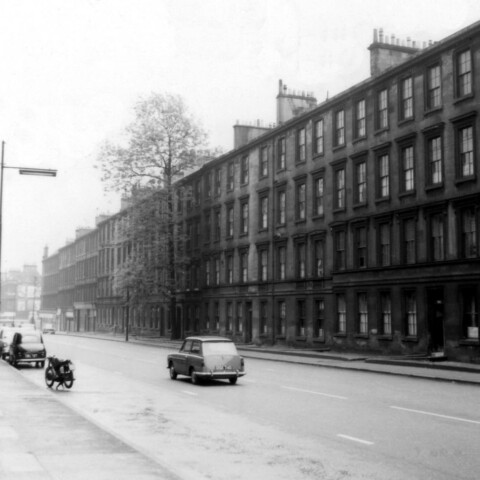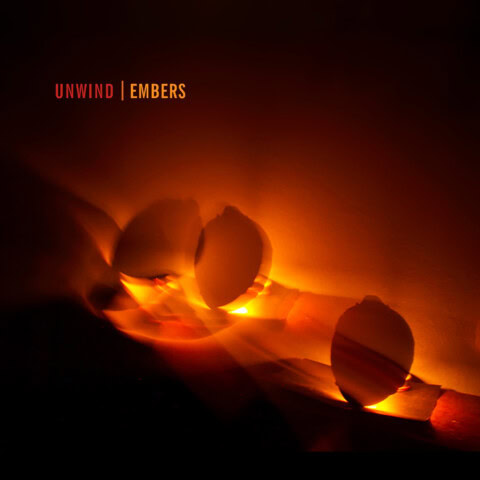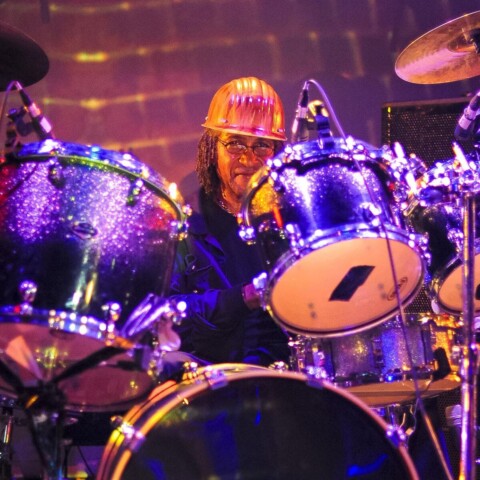Sometimes it takes that old fart GARY STEEL weeks, months or even years to get around to reviewing albums. From the sublime to the frankly ridiculous, here’s another selection to dip into.
 Ambient music has come a long way since Brian Eno supposedly invented it with Music For Airports in the 1970s. In the ‘80s there was an explosion of new age ambient and its natural counterpart, dark ambient.
Ambient music has come a long way since Brian Eno supposedly invented it with Music For Airports in the 1970s. In the ‘80s there was an explosion of new age ambient and its natural counterpart, dark ambient.
After some years in the wilderness, recently ambient music has made something of a comeback, along with its attendant micro-genres. Possibly it’s to do with the fact that modern-day living spaces have continued to shrink and that city life has made for exhausted adrenal systems, so that audiences are more likely to gravitate to relaxing headphone music.
 New Zealand never had a strong tradition of ambience, although if you dig deep enough you’ll find a surprising number of examples, including Jeff Clarkson’s risible new age recordings, several albums by spatial Auckland artist Shima, the more avant-garde scrapings of Rosie Parlane and Dean Roberts, and the electronic murmurings of Mike Hodgson’s Misled Convoy. One man’s ambience is another’s dissonance, I guess.
New Zealand never had a strong tradition of ambience, although if you dig deep enough you’ll find a surprising number of examples, including Jeff Clarkson’s risible new age recordings, several albums by spatial Auckland artist Shima, the more avant-garde scrapings of Rosie Parlane and Dean Roberts, and the electronic murmurings of Mike Hodgson’s Misled Convoy. One man’s ambience is another’s dissonance, I guess.
Alan Brown’s Composure (No Label/Blue Train) identifies strongly with the soft-round-the-edges, wafting soundscapes of some of Brian Eno’s work, but where Eno remains a non-musician dilettante whose ideas are played out by others, Brown is an adept pianist/composer, and here, he plays up to his strengths.
This is Aucklander Brown’s second recent record of piano-based ruminations, and it’s a beautiful thing. At times, Composure could almost be mistaken for a random Keith Jarrett extrapolation. Jarrett’s speciality in the 1970s was long concerts of completely improvised music that often sounded composed, possibly because the piano is an inherently melodic instrument but also because, I guess, he was striving with an enhanced level of concentration for some kind of instant composition.
Brown’s piano playing sounds like a quiet conversation about important stuff navigating through tragedy and beauty but ultimately allowing a meditative stillness to sit hovering over proceedings.
Although Composure will find itself labelled as ‘ambient’, it only partly qualifies because it’s not just a bunch of drifting sound sculptures, and it has real melodies and notes and rhythms dictated by the timing of those notes. The ghostly electric keyboards provide the ambience that Brown uses as a hovering presence, but never uses to excess. Quite often, piano is the only instrument, but he uses the haunted, hushed backdrop to great effect.
It’s a record that’s part introspective journey, part hymn to the cosmos and part isolation tank special. It’s really not the sort of thing you sit in a chair and listen to. I tried, but snoozed off, so moved to the floor, and snoozed off again, but really enjoyed the music’s drift. It’s an excellent piece of work. Rating = 7.5/10
 Alan Brown also recently released his second album under the name of Alargo with Kingsley Melhuish, Primacy (Pacific Echoes). On this collaborative duet, Brown handles keyboards, synths, loops and effects, while Melhuish contributes (deep breath) trumpet, ocarina, koauau, tuba, conch shells, percussion, loops and effects.
Alan Brown also recently released his second album under the name of Alargo with Kingsley Melhuish, Primacy (Pacific Echoes). On this collaborative duet, Brown handles keyboards, synths, loops and effects, while Melhuish contributes (deep breath) trumpet, ocarina, koauau, tuba, conch shells, percussion, loops and effects.
It’s another example of improvised, thinking-in-the-moment, partially ambient music but isn’t quite that easy to put in one bag. For instance the opening track ‘Vocale’ (as the name suggests) plays around with voice, and with its ghostly singing conjures forth the spirit of Tim Buckley’s ‘Starsailor’ along with the between-note drones of throat singing and even, towards the end, a processed Bulgarian choir. Behind it all run trippy synth effects. The title track, on the other hand, starts out like a dreamscape but soon a dirty synth rhythm arrives along with a battery of percussion sounders.
There’s only four tracks on this album and they all clock in at around the 10 minute mark, which gives them plenty of room for ambient drift and slow evolution. ‘Warning Sign’ is a dub of sorts with some nice trumpet tootling, while ‘Zorniseg’ begins with a tuba riff and a counter-melody that sounds Latin before it metamorphoses into the kind of spectral synthesis that resounds on Brian Eno ambient albums like Thursday Afternoon; and ultimately fades on an outro of Philip Glass-like repetitions. Rating = 7/10
 While Primacy is a pretty good album, it’s not as consistently satisfying as its predecessor, Central Plateaus (Pacific Echoes), and for some reason, the sound quality on the earlier album is superior.
While Primacy is a pretty good album, it’s not as consistently satisfying as its predecessor, Central Plateaus (Pacific Echoes), and for some reason, the sound quality on the earlier album is superior.
It’s hard not to think of images of deep space while listening to the title track with its reverbed electric piano providing some comfort from the chill and Melhuish’s elegiac trumpet painting some plaintive tones against the smearing of Brown’s timeless synth drift.
‘Scratch It’ has an almost playful feel w ith its battery of unusual instruments, some low-end rumble, its itchy top end and the vapour waves of synths underneath.
ith its battery of unusual instruments, some low-end rumble, its itchy top end and the vapour waves of synths underneath.
The epic here is the final piece, ‘Actopia’, which clocks in at nearly 18 minutes. There’s some warm, Harold Budd-like electric piano, dubbed-up trumpet and Tangerine Dream-style synth before it picks up steam and kicks into a Krautrock groove, complete with almost holographic whisper-synths. The trumpet is used as a sound sculpture while the synth refuses to adhere to just one note, so sometimes – just like Faust’s Hans Joachim Irmler – Brown achieves a queasy smeared effect. Melhuish gets in some farty action on his tuba before the beats stop to reveal a sonic canvas reminiscent of the Twin Peaks theme, with a similar sense of unease. Rating – 8/10
While ambient music can claim to have still-unexplored territory, the same doesn’t appear to be the case for all the sub-genres of post-Elvis, pre-Beatles rock and roll, given the number of cravenly nostalgic acts currently ploughing the same old furrows.
 Enter Shannon And The Clams, whose sixth album, Onion (Easy Eye Sound/Warner) will be snapped up by fans of producer Dan Auerbach, but is really as dire as it gets.
Enter Shannon And The Clams, whose sixth album, Onion (Easy Eye Sound/Warner) will be snapped up by fans of producer Dan Auerbach, but is really as dire as it gets.
The whole thing sounds like a high school theatrical tribute to Del Shannon, the Everly Brothers and Buddy Holly that’s gone horribly wrong. They’ve mixed in a little surf music, stolen an organ from the cracks of ‘Runaway’, and ‘composed’ a bunch of comfortably nostalgic songs that are so redolent of actual hits of the era that you could just about name the main influence on each of them.
The whole thing made me feel a bit dizzy, really, and not in a good way. They may be a blast in concert, but this is dull nostalgia, and they’re bringing nothing new to a borer-riddled table. Rating = 2/10
And to add insult to injury, there’s yet another new album by Shannon Shaw doing the rounds. In Nashville (Easy Eye Sound/Warner) applies the same nostalgic angle to country music and it’s just as unappealing to this reviewer, especially so given that her foghorn of a voice is the key element. Rating = 2/10
 Don’t Let Them Lock You Up (No Label/Rhythmethod) is the advice of Auckland-based duo Hopetoun Brown on their third album, on which they’ve expanded past the novel “look, we can do all this with no clothes on or even electricity” approach of their earlier work.
Don’t Let Them Lock You Up (No Label/Rhythmethod) is the advice of Auckland-based duo Hopetoun Brown on their third album, on which they’ve expanded past the novel “look, we can do all this with no clothes on or even electricity” approach of their earlier work.
These two both emanated from that huge Kiwi super-group, Supergroove, and they’ve mostly kept it all pretty buoyant and fun-filled, which makes them a great live draw. There are limitations in what you can do with novel instruments like tuba, though, as refreshing as it is to hear sounds other than the ster eotypical and expected.
eotypical and expected.
The fun factor is still here on Don’t Let Them Lock You Up but personally, I found it hard to engage in the album, despite a surfeit of clever ideas and snappy playing from a range of guest artists.
There’s some tightly wound funk and some call-and-response fun and they’ve even started experimenting with synthesiser tones but none of the songs really resonated. Hopetoun Brown had a hook before and I’m just not sure what they are anymore. Maybe it all exploded beautifully on the WOMAD stage, where they debuted the album, but here on my lonely hi-fi it sounds like something not worth a repeat performance. Rating = 6/10















